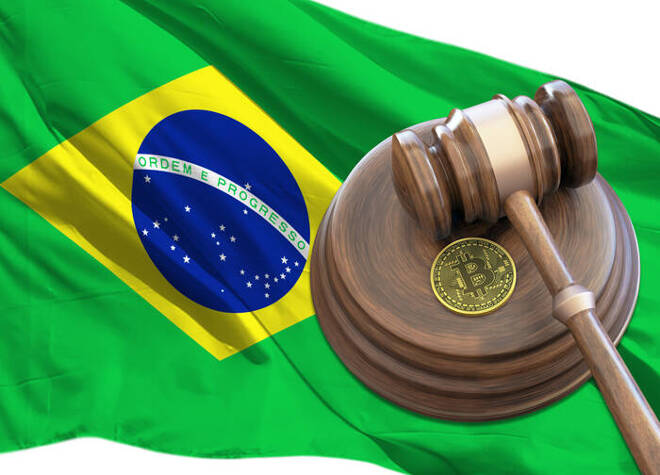Advertisement
Advertisement
Central Bank of Brazil Lists Nine Partners to Assist With CBDCs
By:
Brazil’s central bank revealed that it has selected nine projects to aid in its quest to develop CBDC and wants to evaluate use cases for a digital real.
Key Takeaways:
- Brazil has chosen nine partner projects to help build its CBDC.
- Partners include companies like Mercado Bitcoin and Aave.
- Implementation of the partner projects is expected to occur between March and July 2022.
The Central Bank of Brazil recently revealed that it has selected nine projects to help develop its central bank digital currency (CBDC).
Brazilian CBDC on Its Way
As reported by media organizations on March 3, Brazil’s central bank has listed nine proposals from 47 options. On Thursday, the central bank said it received 47 project proposals from Brazil, Germany, the US, Israel, Mexico, Portugal, the UK, and Sweden. The bank further noted that it is looking at CBDC use cases and assessing its technological feasibility.
The selected partners include the Defi lending platform Aave, the Brazil-based cryptocurrency exchange Mercado Bitcoin, and banks like Santander Brasil and Itaú Unibanco.
The list also consists of the Brazilian bank federation Febraban, the German payments company Gieseck+Devrient, and the Brazilian banking service Tecban and its partner Capitual.
The projects would move forward through an innovation lab co-managed by the bank. That said, other firms set to collaborate on the project include VERT (with Digital Asset and Oliver Wyman), a tokenization project for rural financing. The list also includes Visa of Brazil, ConsenSys, and Microsoft. The projects would use a Defi solution for financing small and medium-sized businesses.
As per reports, the bank also said:
“Given a large number of projects of relevance and interest for the development of the real digital initiative, the selection process sought a balance between the diversity of the portfolio of proposals submitted to the lab and the need for detailed monitoring of the chosen projects.”
Pilot Set to Roll out This Year
In November last year, the Central Bank of Brazil announced that it would begin its CBDC pilot in 2022. The emerging reports also suggested that the final product could be complete by 2024.
Reportedly, the partnerships announced today could be implemented between March 28 and July 27 this year. Brazil’s CBDC will be pegged to the country’s official currency— the Brazilian real (BRL).
That said, the economic affairs committee of Brazil had approved a crypto bill on February 23, this year, marking the country’s first step towards regulation.
Apart from the nation’s CBDC efforts, Brazil has become a pioneer of cryptocurrencies. Notably, Rio de Janeiro plans to invest 1% of its treasury in Bitcoin. At the same time, Brazil’s senate has introduced a bill that could recognize crypto markets.
About the Author
Varuni Trivediauthor
A Journalism post-graduate with a keen interest in emerging markets across South East Asia, Varuni’s interest lies in the Blockchain technology. As a financial journalist, she covers metric and data-driven stories with a tinge of commentary, and strongly believes in HODLing.
Advertisement
